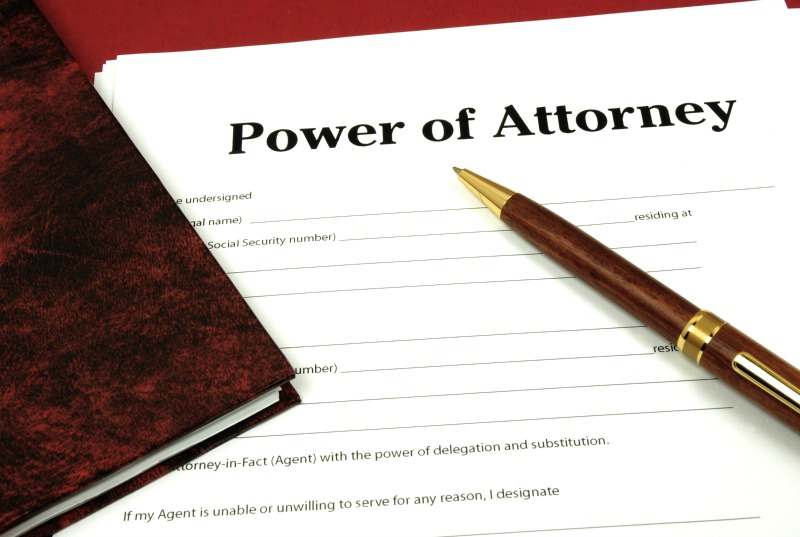Do you need a Power of Attorney?

Here are some facts that may help determine if you, or someone you love, should consider implementing a Power of Attorney.
Power of Attorney (POA), also known as Legal Agent, or Attorney-in-fact.
The Wikipedia definition of a POA is; written authorization to represent or act on another’s behalf in private affairs, business, or some other legal matter.
Basically, the duties of a person or organization that has been designated as your POA are to act on your behalf and complete the designated tasks in your best interest and as outlined in the POA document.
When considering creating a POA, it is important to recognize that there are two different types of Power of attorney;
1) POA for Healthcare. This allows your agent to make healthcare decisions on your behalf if you are incapacitated, unconscious, or otherwise unable to make these decisions on your own.
2) POA for Finances. This allows your agent to make legal or financial decisions on your behalf.
For a Healthcare POA, it is important to know the difference between a Living Will and a POA for Healthcare.
A Living Will sets forth your wishes on topics such as resuscitation, desired quality of life and end of life treatments including treatments you don’t want to receive. This document is primarily between you and your doctor, and it advises them how to approach your treatment.
Realizing that it may be difficult to account and plan for every possibility with respect to your future healthcare, this is where the durable power of attorney for health care comes in.
A POA for Healthcare is written to allow the person you appoint to make medical decisions for you in an emergency. (Even though you may have outlined your treatment wishes in your living will, the person who has a power of attorney for healthcare can make decisions not covered by your living will.) The person or entity acting as your Healthcare POA is there to fill in gaps, for situations not covered by your living will, or in case your living will is invalidated for any reason.
Typical examples of what a Healthcare POA duties might be are:
- Providing medical decisions that aren’t covered in your Living Will
- Enforcing your healthcare wishes in court if necessary
- Hiring and firing doctors and medical workers seeing to your treatment or seeking alternative treatments or practitioners if outlined in your Living Will
- Having access to medical records
It is essential to choose an agent wisely and discuss the scope of the responsibility with them. Choosing multiple agents can ensure more sound decisions, acting as checks and balances against one another. However, having multiple agents also presents its problems. Many times, having multiple agents, means multiple personalities which can lead to disagreements which may ultimately delay important treatment or care and may even result in legal battles.
If one agent is appointed, it is a good idea to have a back up in the event the original agent is unable to serve when the time comes. Naming a successor agent, (another person or attorney etc.) ensures the duties will be filled if the original agent is unable to serve.
A Durable POA for financial and legal matters allows the agent to make decisions in the absence or incapacitation or inability of the principal or grantor. The Durable POA can be structured various ways, allowing the designated agent specific tasks, such as bill paying, managing assets or selling of a home, or it may allow the agent full access and decision-making ability for all legal and financial matters.
The POA can be structured so that financial responsibility occurs immediately or, the POA can defer the effective date until the principal or grantor becomes incapacitated and unable to make these decisions on their own. There are legal definitions of who can determine when a person becomes legally incapacitated, most often required through a court and verified by a physician, so be aware this may be a tricky process if delaying the effective date of the POA.
It’s recommended that these documents should be prepared long before someone starts having trouble handling certain aspects of life. At the time of signing a POA, the principal or grantor (person establishing the POA) must be capable and of sound-mind to be able to appoint a POA.
Understanding that without legal authority, no one can make decisions or take care of your financial obligations on your behalf. Without these documents, many families end up in court to gain legal authority, which takes time. It is important to understand what a POA is and how it can assist in taking care of you now and in the future. So, whether you locate your POA forms on line (forms vary by State, usually must be witnessed and notarized) or have them prepared by an Estate Planning Attorney, remember to make sure someone knows they exist and knows where to locate them.
For more information on where to store the important papers your loved ones will need and more, visit www.mylifeandwishes.com